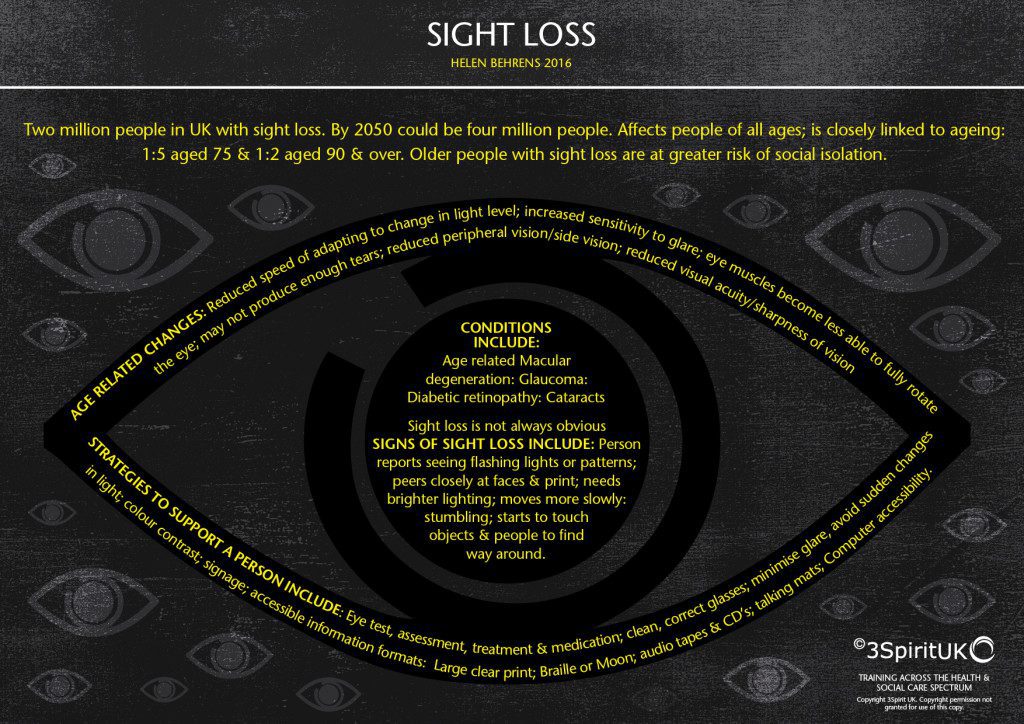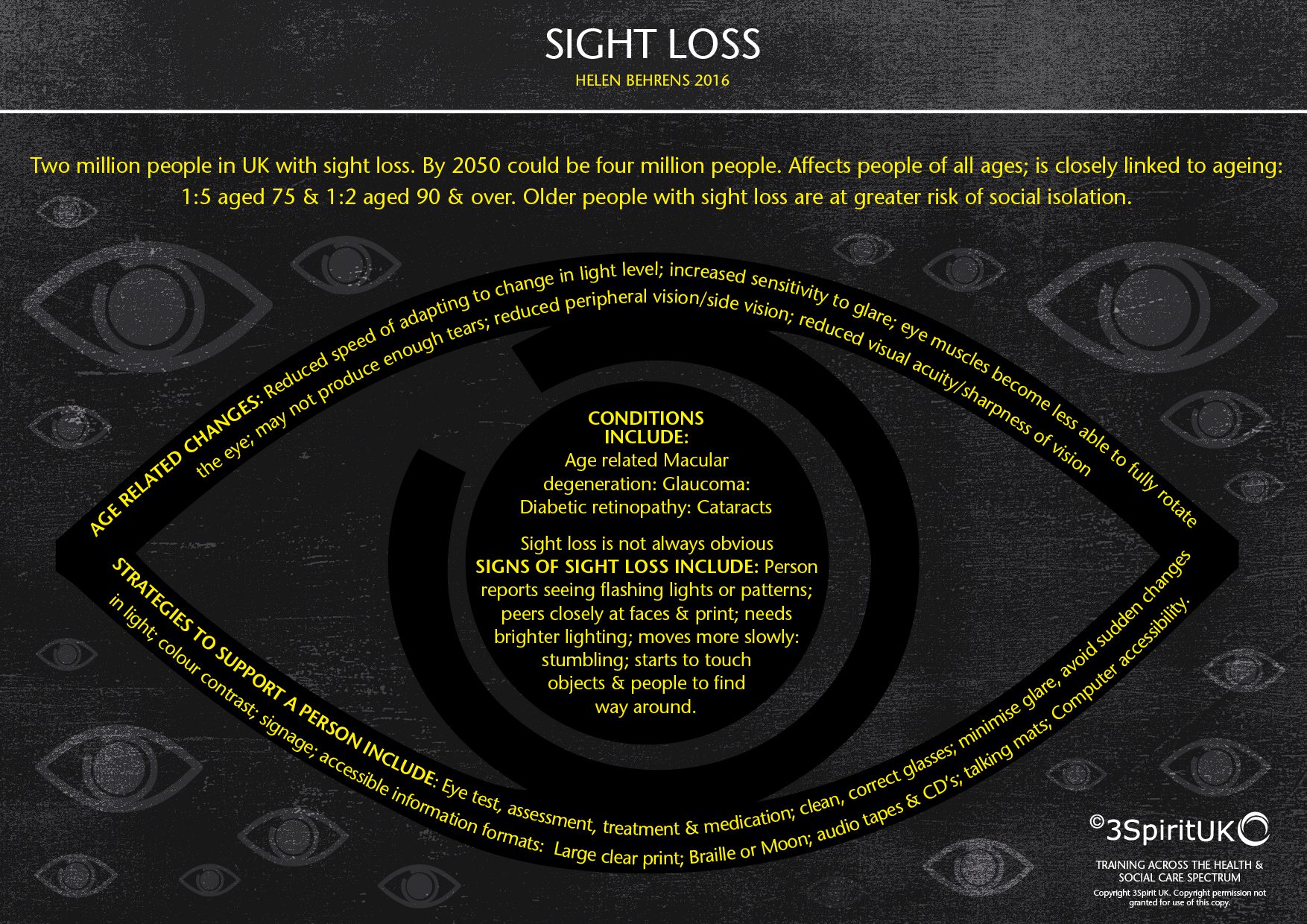
According to the Department of Health (2013) there are an estimated 15 million people with long term conditions which cannot be cured including dementia, hearing loss, diabetes, sight loss, stroke. In many cases long term conditions are linked to the ageing process.
Age-related damage is the single biggest cause of hearing loss, and 44% of over-70 year olds have moderate to severe hearing loss (Joining up, action on hearing loss). People with hearing loss have problems recognising speech, especially in challenging environments. They need to concentrate more than people with normal hearing to pick up as much as possible from the acoustical world (Arlinger 2003).
Uncorrected hearing loss gives rise to a poorer quality of life, reduced social activity, and increased symptoms of depression.
There are almost 2 million people living with sight loss in the UK. Sight loss may be due to long term conditions. For example diabetes: over 1 in 20 people in the UK have diabetes and are at risk of sight loss (diabetic retinopathy). It is estimated 60% of people following a stroke have visual problems. Sight loss is linked to age with 1 in 5 people over the age of 75 living with sight loss (Access economics 2009).
Difficulties with vision are not always obvious. Signs of sight loss might include:
- Person reports flashing lights or patterns in front of their eyes
- Peering closely at faces and print
- Needs brighter lighting
- Moves more slowly: stumbling
- Starts to touch objects and people to find way around
Sight loss impacts upon a person’s wellbeing including increasing the risk of social isolation and risk of injury through falling: visual impairment is associated with falls and hip fractures. NICE has emphasised the importance of visual assessment in prevention of falls (NICE CG 161 June 2013: Falls in older people: assessing risk and prevention).
Appropriate lighting may help to reduce the incidence of falls. By the age of 75 a person needs four more times the light that a person needs when they are 20. As the eye gets older it has more difficulty managing glare and changes to light levels, therefore avoiding sudden changes in light levels will help.
Addressing communication needs is essential to enable people to play a role in managing their long term conditions: for example diabetes. As older people may have co-morbidities and sensory loss, there are implications for services: Services may need to consider how to support a person’s sensory loss to ensure they may understand information about their condition and how they may manage their condition.
The greater the age of a person, the greater the risk of developing a dementia: 820,000 older people have a diagnosis of dementia in UK (Alzheimer’s Society) and therefore older people may have dementia, sight and hearing loss. Dementia, together with sensory loss, can make communication more difficult.
Some types of dementia can cause visual problems and sight loss may make the effect of dementia appear more pronounced.
A person living with dementia uses their sensory and cognitive skills to understand the world around them. If one aspect is damaged, for example cognitive skills, a person with dementia becomes more reliant on their sensory skills to transfer information to the brain to help them make sense of the world around them. The analysis of the information will be impaired if the person has damage to certain lobes of the brain: for example: if there is damage to the occipital lobe, the person may have difficulty recognising an object or with colour contrast. These difficulties are known as ‘visual perceptual problems’, and may present as illusions, misinterpretations or misidentifications.
A person that is older, and living with dementia, may need additional help to manage their sight loss and/or hearing loss. Problems with memory may mean that the person forgets to put their glasses on, or forgets where their glasses are. Memory aids visual or auditory (e.g. recorded message) may be helpful. A person living with dementia will uses clues in the physical environment to understand what they are doing, or what is happening next. Appropriately supporting sensory skills may help them to do this.
Helen Behrens (Trainer 3 Spirit UK)

Access Economics, (2009). Future Sight Loss UK 1: The economic impact of partial sight and blindness in the UK adult population. RNIB.
Department of Health (DH) (2013) Improving quality of life for people with long term conditionshttps://www.gov.uk/government/publications/2010-to-2015-government-policy-long-term-health-conditions accessed 7/01/2016
Arlinger S (2003) Negative consequences of uncorrected hearing loss––a review International Journal of Audiolog; 42:2 S17–2 S20
Follow UsShare Us

